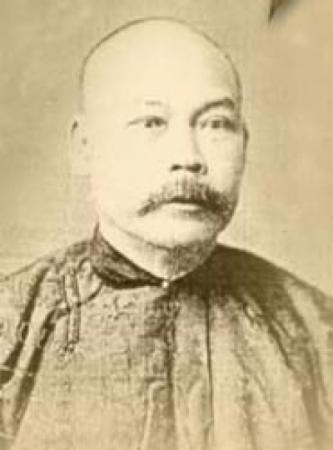Fee Lee Wong
Fee Lee Wong
1841~1846 - 1921
Fee Lee Wong arrived in Deadwood Gulch in December 1876. Like many Chinese immigrants on the Western frontier, Wong came seeking his fortune. Unlike most, he ended up making Deadwood his home. He built a business, married, raised a large family, adopted North American ways and shared his own culture with his non-Chinese neighbors. In the process, he earned the deep respect of his countrymen and the people of Deadwood.
“He was a man of many accomplishments, shrewd in business and a patriotic citizen of his adopted country,” the Deadwood Daily Pioneer-Times wrote upon receiving word of Wong’s death in 1921. “He was a man whose word was his bond, scrupulously honest, a contributor to every charity which appealed to him, free and generous, a heavy purchaser of liberty bonds and a contributor to every enterprise that would help Deadwood.”
During his 43 years in Deadwood, due to varying English translations, he was known by many names: Wong Fee Lee, Wong Free Lee, Wong Fay Lee, Wing Tsue, Dr. Wing Tsue, Wing Touie and Wing Tone. Sometime between October 1882 and May 1883, he married Haw Shoog Gain. Their eight surviving children, born between 1884 and 1902, were raised in Deadwood. Many attended public school. Two of his sons went on to attend universities in the United States.
Wong’s business interests included mining, merchandise and a number of other ventures. He was best known, perhaps, for a pair of sturdy brick buildings on Lower Main Street collectively named the Wing Tsue Bazaar. Constructed in 1885 and 1896, these buildings stood as the center of Deadwood’s Chinatown community for decades.
At every opportunity, Fee Lee Wong reached out to the community beyond Chinatown. He donated money for the Independence Day festivities and sponsored a Chinese entry in the annual parade. He staged a Chinese hose cart team for the firefighter competitions popular at the time. In addition, he invited Deadwood townsfolk to join in events such as Chinese New Year and the Hungry Ghost Festival, and also purchased burial plots for individual Chinese at Mt. Moriah Cemetery.
One testament to his esteem was the the support he received from friends when he was not allowed to return to the United States after a 1902 trip to China. Under the Chinese Exclusion Act, the U.S. government denied his entry to the United States. Prominent South Dakotans, including Circuit Court Clerk Sol Star and Congressman Eben Martin, intervened on his behalf, and Wong was allowed to return.
In 1919, Fee Lee Wong suffered a stroke during a meeting of the Society of Black Hills Pioneers, of which he was a member. He recovered enough to travel, and returned to his Chinese homeland, where he died two years later.

